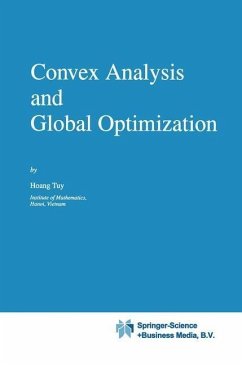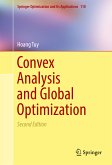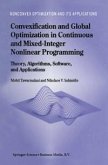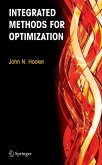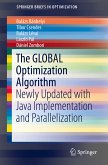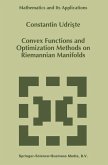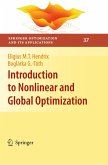Dieser Download kann aus rechtlichen Gründen nur mit Rechnungsadresse in A, B, BG, CY, CZ, D, DK, EW, E, FIN, F, GR, HR, H, IRL, I, LT, L, LR, M, NL, PL, P, R, S, SLO, SK ausgeliefert werden.
Hinweis: Dieser Artikel kann nur an eine deutsche Lieferadresse ausgeliefert werden.
"This reviewer believes that the book can be recommended not only to researchers but also to graduate students ... and even practioners, who can identify problems arising from various fields among those dealt with in the book." (Sorin-Mihai Grad,Mathematical Reviews, June, 2017)
"The book is a well-prepared exposition of the state-of-the-art of the theory and algorithms in the area of modern global optimization. ... a good choice if one needs a textbook for graduate or PhD course. It would be also suitable for engineers and other practitionners that would like to better understand the algorithms that they use." (Marcin Anholcer, zbMATH 1362.90001, 2017)

